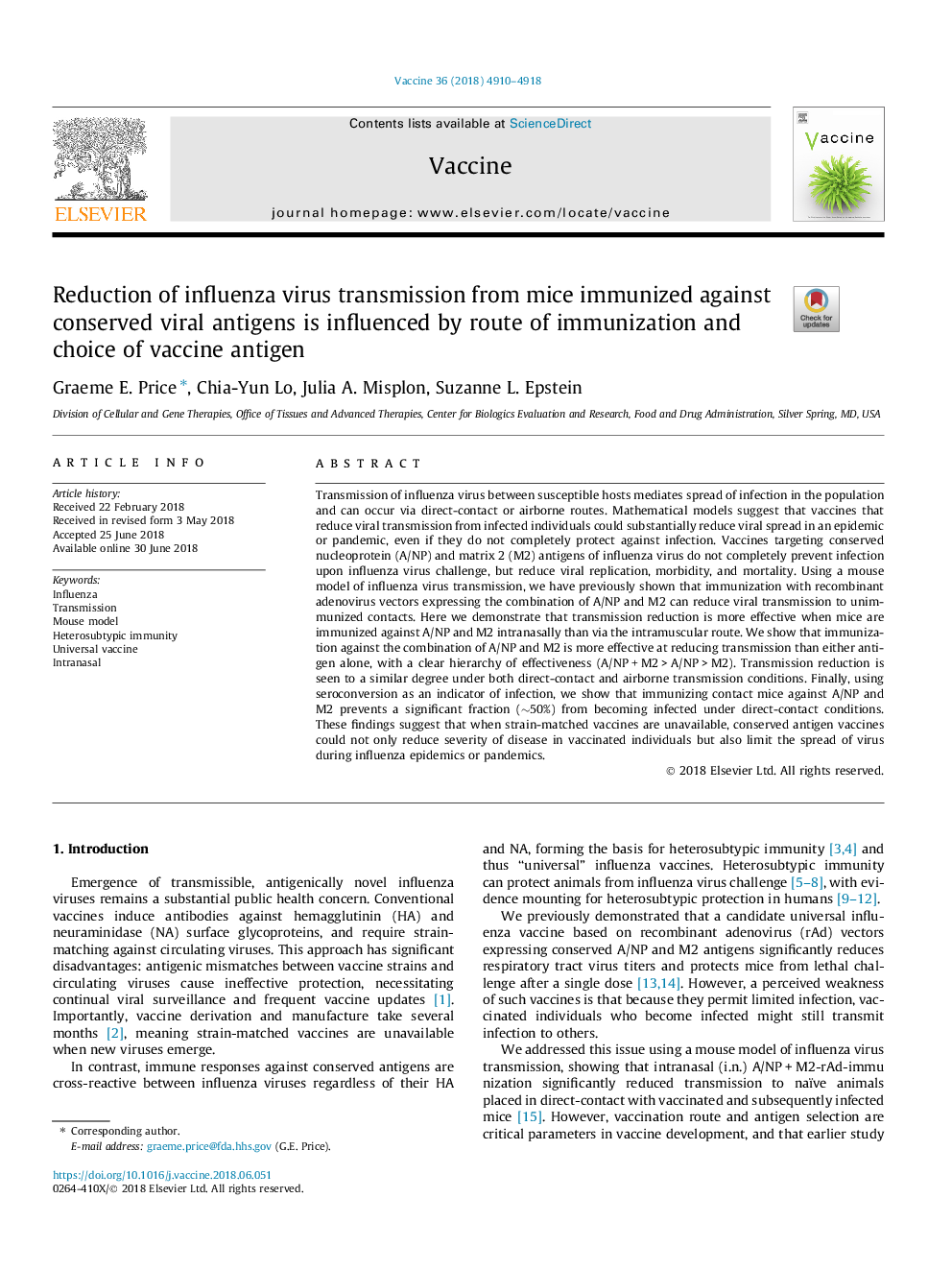| کد مقاله | کد نشریه | سال انتشار | مقاله انگلیسی | نسخه تمام متن |
|---|---|---|---|---|
| 8485417 | 1551735 | 2018 | 9 صفحه PDF | دانلود رایگان |
عنوان انگلیسی مقاله ISI
Reduction of influenza virus transmission from mice immunized against conserved viral antigens is influenced by route of immunization and choice of vaccine antigen
ترجمه فارسی عنوان
کاهش انتقال ویروس آنفلوآنزا از موشهای واکسینه شده علیه آنتی ژن های محافظت شده ویروسی تحت تاثیر راه های ایمن سازی و انتخاب آنتی ژن واکسن
دانلود مقاله + سفارش ترجمه
دانلود مقاله ISI انگلیسی
رایگان برای ایرانیان
کلمات کلیدی
موضوعات مرتبط
علوم زیستی و بیوفناوری
ایمنی شناسی و میکروب شناسی
ایمونولوژی
چکیده انگلیسی
Transmission of influenza virus between susceptible hosts mediates spread of infection in the population and can occur via direct-contact or airborne routes. Mathematical models suggest that vaccines that reduce viral transmission from infected individuals could substantially reduce viral spread in an epidemic or pandemic, even if they do not completely protect against infection. Vaccines targeting conserved nucleoprotein (A/NP) and matrix 2 (M2) antigens of influenza virus do not completely prevent infection upon influenza virus challenge, but reduce viral replication, morbidity, and mortality. Using a mouse model of influenza virus transmission, we have previously shown that immunization with recombinant adenovirus vectors expressing the combination of A/NP and M2 can reduce viral transmission to unimmunized contacts. Here we demonstrate that transmission reduction is more effective when mice are immunized against A/NP and M2 intranasally than via the intramuscular route. We show that immunization against the combination of A/NP and M2 is more effective at reducing transmission than either antigen alone, with a clear hierarchy of effectiveness (A/NPâ¯+â¯M2â¯>â¯A/NPâ¯>â¯M2). Transmission reduction is seen to a similar degree under both direct-contact and airborne transmission conditions. Finally, using seroconversion as an indicator of infection, we show that immunizing contact mice against A/NP and M2 prevents a significant fraction (â¼50%) from becoming infected under direct-contact conditions. These findings suggest that when strain-matched vaccines are unavailable, conserved antigen vaccines could not only reduce severity of disease in vaccinated individuals but also limit the spread of virus during influenza epidemics or pandemics.
ناشر
Database: Elsevier - ScienceDirect (ساینس دایرکت)
Journal: Vaccine - Volume 36, Issue 32, Part B, 6 August 2018, Pages 4910-4918
Journal: Vaccine - Volume 36, Issue 32, Part B, 6 August 2018, Pages 4910-4918
نویسندگان
Graeme E. Price, Chia-Yun Lo, Julia A. Misplon, Suzanne L. Epstein,
